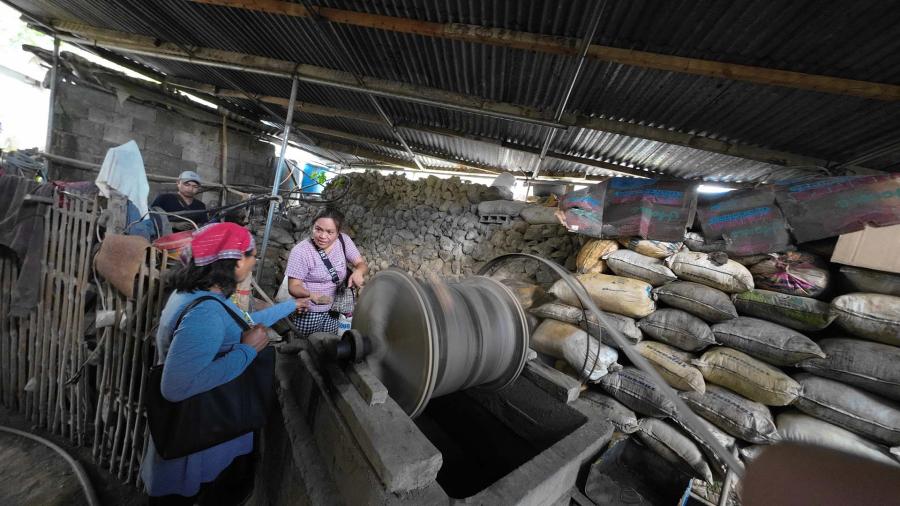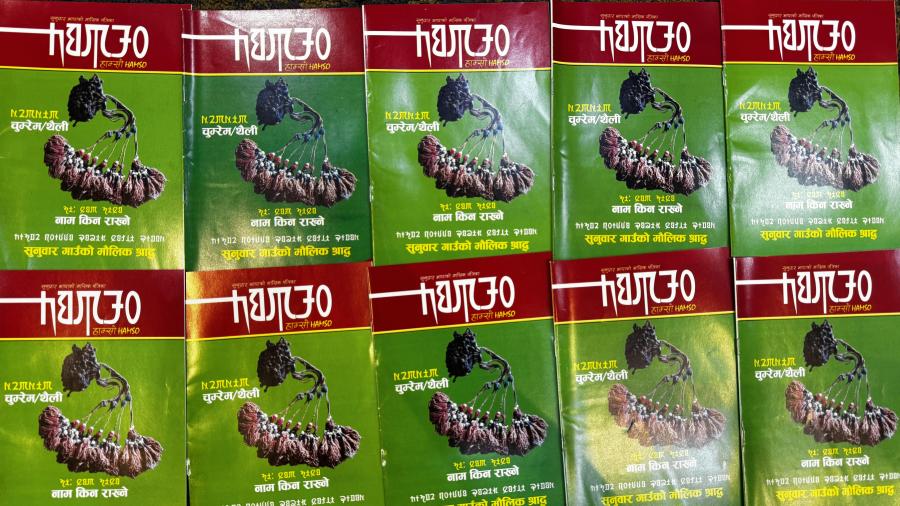
By Dev Kumar Sunuwar (Koĩts-Sunuwar, CS Staff)
Despite ongoing protests by Majhi Indigenous Peoples living alongside the Sunkoshi and Tamakoshi Rivers in eastern Nepal, the government of Nepal launched the Sunkoshi-Marine Diversion Multipurpose Project, one of the most debated developments in the country. Majhi Indigenous Peoples are demanding a halt to the project as it will result in the displacement of a large number of Majhi Indigenous Peoples and other local communities. Their lands and territories will be submerged, impacting their identity and spiritual and cultural heritage.
The banks of the Sunkoshi and Tamakoshi Rivers are the ancestral land and territories of Majhi Indigenous Peoples, who for generations have made a living by fishing, boating, and agriculture. According to Majhi Indigenous communities, the development project was initiated without consultation. No public hearings were conducted nor any information provided about compensation or the impact and benefits incurred by the project. The government has not yet made the Environment Impact Assessment publicly available in the language they speak and understand.
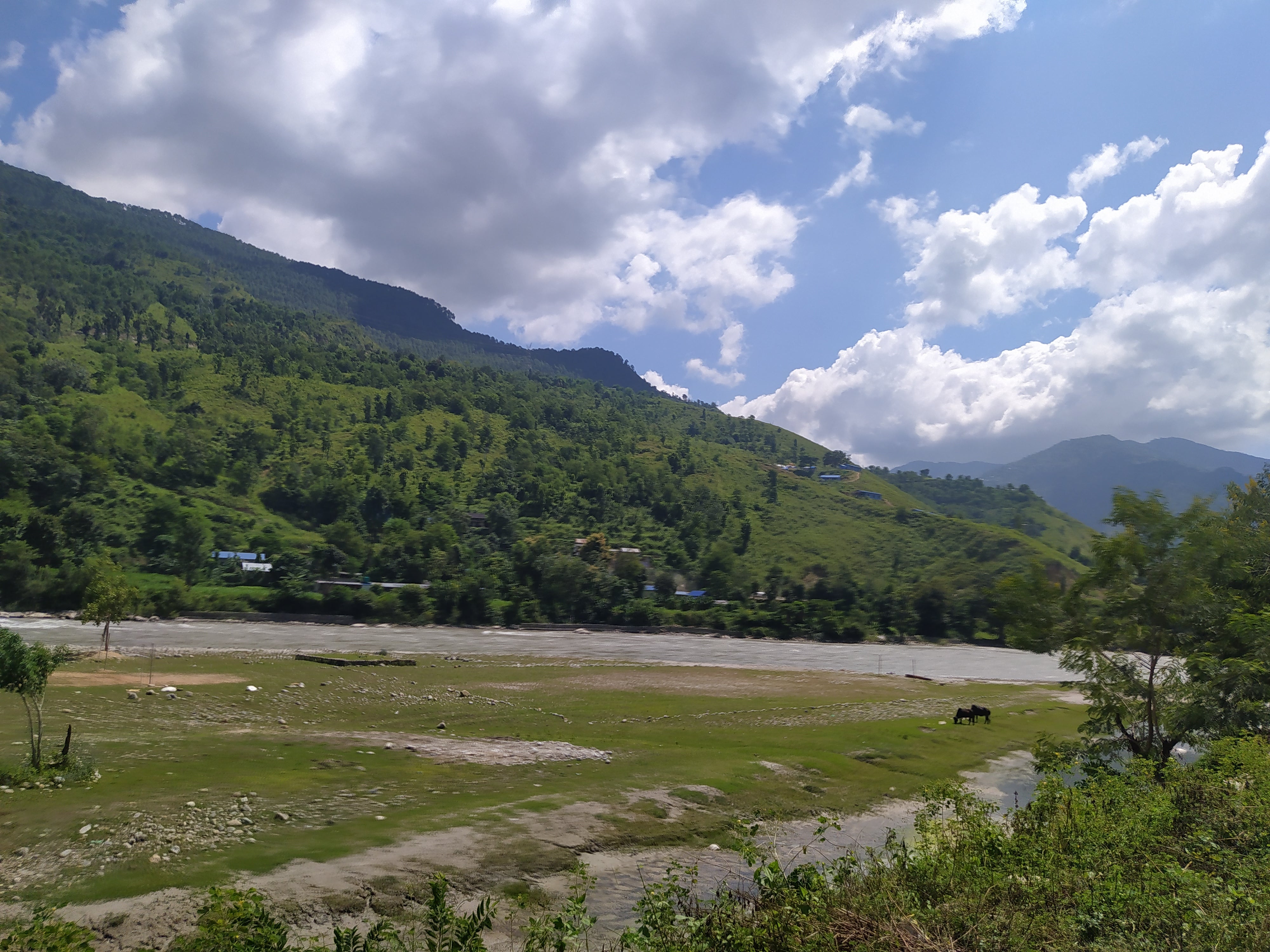
On October 14, 2022, Pampha Bhusal, Minister for Energy, Water Resources, and Irrigation, greenlighted the tunneling work. With a deadline to complete the project within 24 months, the government has given a contract to a Chinese company, China Overseas Construction Company Limited, which plans to complete the 13.3 ki13.3-kilometer. The government also has a plan to build a 12-meter-high diversion intake dam in Sunkoshi River at Khurkot, the border of Ramechhap and Sindhuli districts, to collect water flowing from Tamakoshi and Sunkoshi Rivers.
The dam will divert water through the tunnel from Sunkoshi River to Marinkhola, a tributary of Bagmati River, in Sindhuli district to irrigate 1,220 square kilometers of land in five districts in southern Nepal (Bara, Rautahat, Sarlahi, Mahottari, and Dhanusha), and also generate 28.62 megawatts of electricity at Kusumtar, Kamalamai municipality in Udayapur district. The government has allocated 37.2 billion rupees ($280 million USD) for irrigation and 46.19 billion rupees ($350 million USD) for hydroelectricity.
“The Sunkoshi-Marine Diversion Multipurpose Project will submerge about six villages along the Tamakoshi and Sunkoshi river banks. Ninety percent of the households and fertile land, [along with] sacred sites, belong to Majhi Indigenous communities,” says Rita Majhi, Chairperson of Nepal Majhi Women’s Association. “Once we are displaced from our ancestral land and territories,” she warns, we lose our collective lifestyle, our rituals. We lose our traditional occupations of fishing and boating, which eventually affects the passing on of our knowledge and rituals relating to rivers. Moreover, we need fish, which are caught from nets and hooks from rivers. They will be detached from the fishing occupation. The dam also will submerge all the herbs that Majhi communities use for treating illness. It is only Majhi [that those] who are living along and around the river banks of Tamakoshi and Sunkoshi speak; if they are settled in other places, they will eventually lose their language as well.”
According to Majhi, even if the government provides compensation to the small percentage who hold titles to their land, the challenge for Majhi Indigenous communities is that the majority of affected Majhi do not have land in their names, despite farming it for generations. When land registration was introduced by the government, many did not know about the provision of registration. Only a few registered land in their name, so the majority of Majhi have received any compensation. One of their primary demands is to get compensation for the land that they have been using for centuries even without registration as per international law.
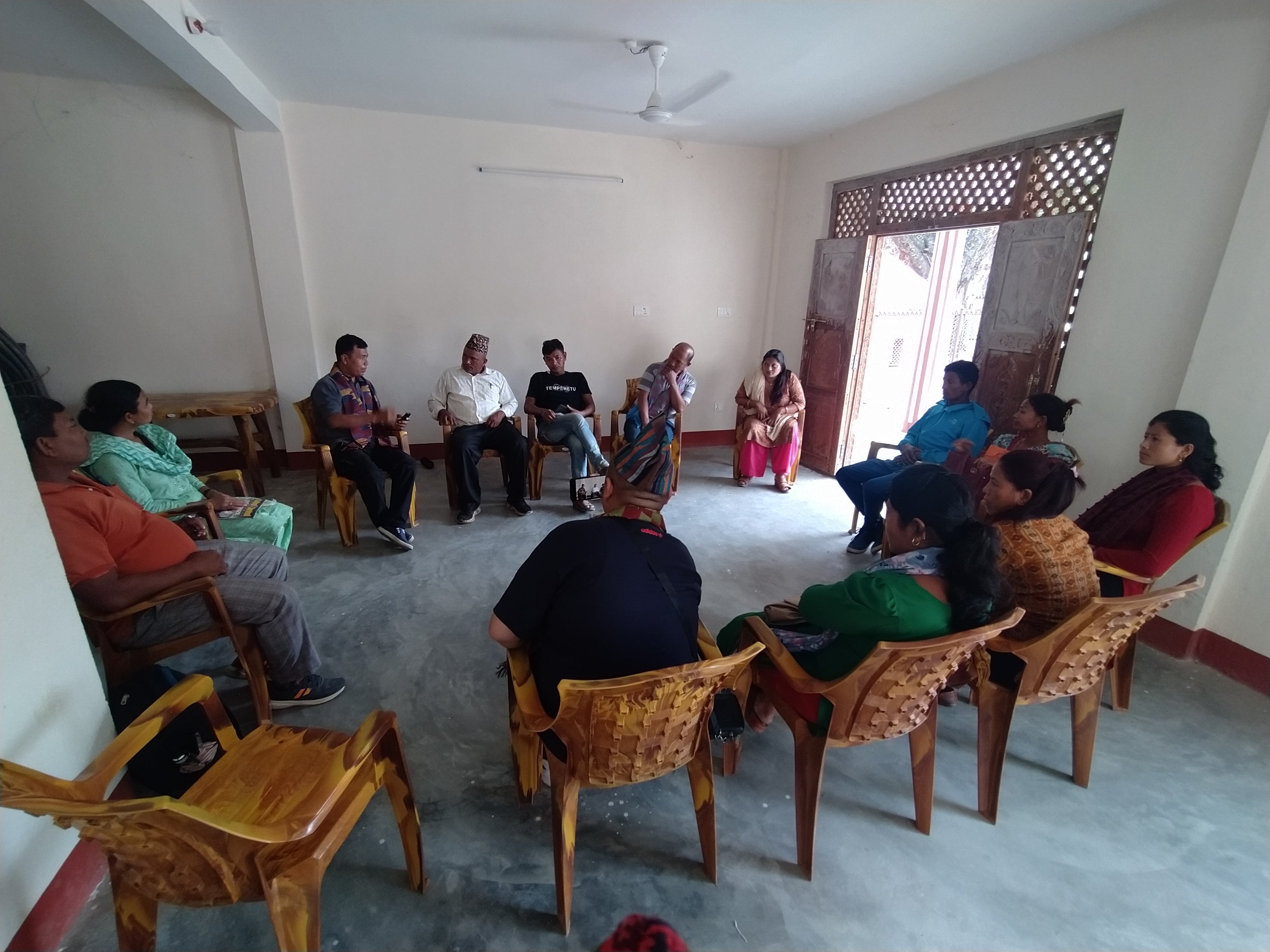
Majhi are one of the 59 Indigenous Peoples categorized as one of the highly marginalized Indigenous nationalities residing alongside the banks of the rivers and streams, traditionally Majhi’s livelihood and customary ways of life revolve around the local rivers. Subsistence farming, fishing, boat making and, helping people to cross rivers in their ferries constitute their traditional occupation while Majhi women earn income by making Marcha (yeast cakes used to make beer) and local liquor. Their social and cultural values are systematically managed by their customary institution called Majhesewa According to the 2011 Census, the population of Majhi is 83,727, spread across 58 districts, living mainly along the banks of the Indrawati, Sunkoshi, Tamakoshi, Likhu (Barun), Dudhkoshi, Arun, and Tamor rivers, as well as the Bagmati, Marinekhola, and Triyuga rivers in Udayapur district. Due to development projects such as hydropower and bridges, their boating occupation has almost gone extinct.
Rajgaou, a settlement on the Sunkoshi River in Khadadevi Rural Municipality 4, is the historical and ancestral territory of Majhi Indigenous nationalities. The village is so named because it was once ruled by a raja (king) named Madare, and bricks are found there that are said to be that of the palace. Their main festivals involve the worshiping of water, which is called Ladi Puja, or Koshi Puja, and the worshiping of Ghat (riverside graves), called Ghat Puja. Water resources and fish are necessary for each of their cultural rituals, from cradle to grave. However, Majhi community members say that the government has not considered whether the dam will affect their festivals and cultural practices of cremating the bodies of their dead.
In addition to the Marine Diversion project, the government has a plan to build three additional hydropower projects alongside the Sunkoshi River: Sunkoshi-1, Sunkoshi-2, and Sunkoshi-3, including the construction of a 168-meter-high dam. These Projects are likely to cause flooding up to at least 53 kilometers from the dam covering an area of 45 square kilometers, submerging the majority of settlements along the banks of Sunkoshi and Tamakoshi rivers and displacing around 6,000 households. In total, the project could impact 400,000 people.
Free, Prior and Informed Consent is one of the international legal principles that guarantees the Majhis’ right to participation. It is protected under ILO Convention 169, as well as the UN Declaration on the Rights of Indigenous People, which Nepal also voted in favor of at the UN General Assembly. In regards to the Sunkoshi Marine Diversion project, however, the government did not seek the Mahjis’ Free, Prior and Informed Consent or carry out any consultation with affected communities. Rather, the government violated their right to own, use, and develop their ancestral lands, territories, and resources, and deprived them of being able to fully enjoy their economic, social, and cultural rights before launching any development project.
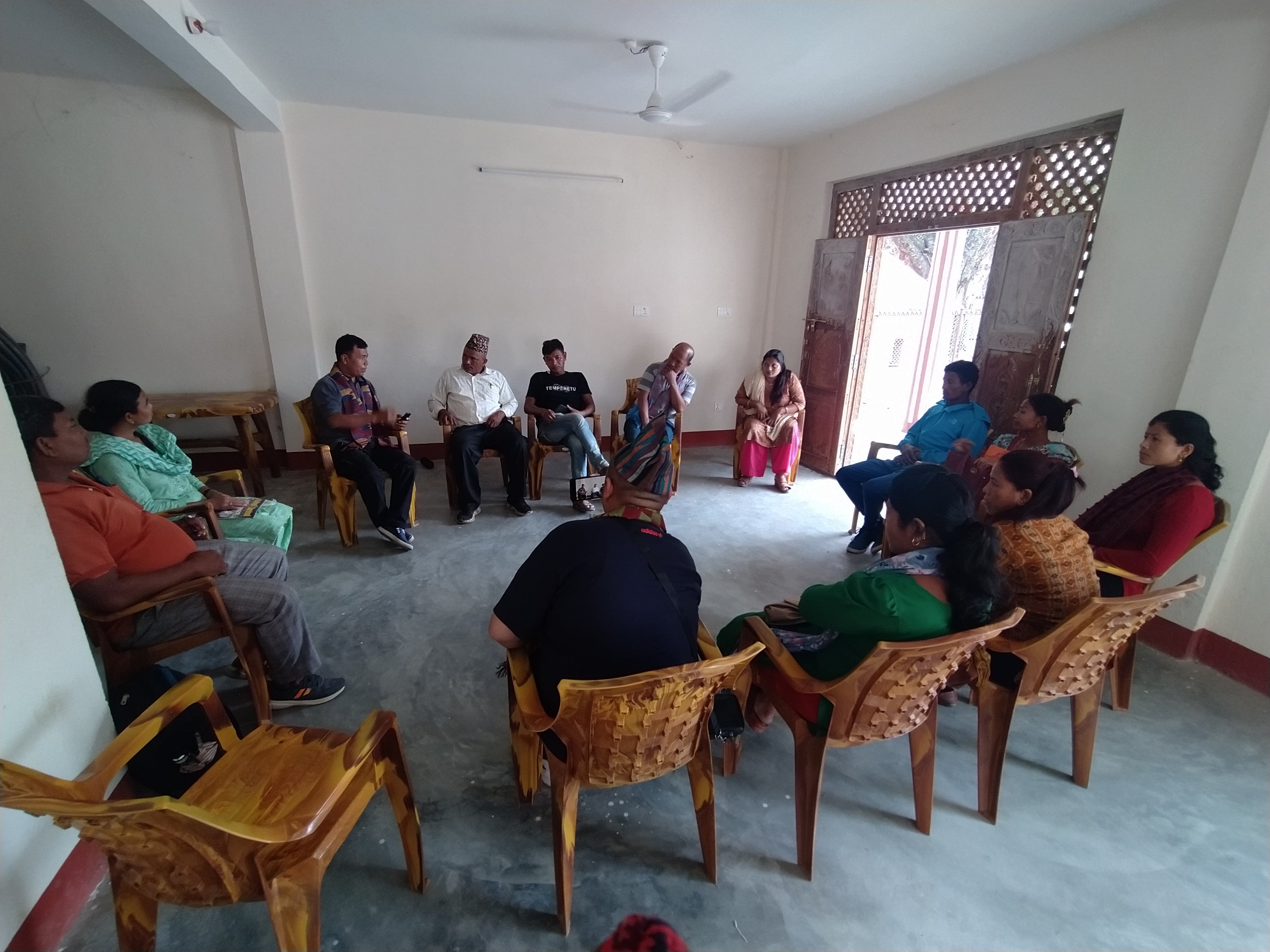
“A machine would fly above our settlement; we then came to know that it was a drone. NGOs in Kathmandu, including the Nepal Majhi Uplift Association and the Nepal Majhi Women’s Association came to us and organized interactions. Only then did we come to know it was for the projects,” says Urba Majhi, a representative of the affected communities. He adds, “When development comes, yes, villagers need to be happy, but the government should also know that villagers will be happy. Majhi, for generations, have been living alongside the river. We have been living innately with rivers, adapting with water in the rivers. If we are settled on a hill or a mountain, we can’t maintain our lifestyles, our culture. We are not against development. But we don’t want to live miserably, feeling sad and suffering.”
Majhi continued: “We Majhi Indigenous Peoples will be losing our land and belongings. The government should not merely ensure our housing, food, and clothing, but also should also guarantee our rituals and culture. We need land and water in replacement of [what we will lose]. And we need employment skills. How else can our families survive?” Time and again, the government has deployed security forces, including the military, to carry out a number of hydro projects that have directly or indirectly targeted Indigenous Peoples in Nepal. Using the principle of eminent domain (the right of a government to seize private property for public use in exchange for payment of fair market value), the government has been preventing Indigenous Peoples from getting due justice. The government’s latest violation of the rights of Majhi Indigenous Peoples via the Sunkoshi Marine Diversion project is neither new nor surprising.
According to the 1977 Land Acquisition Act, the government can acquire privately held land for public works if compensation is offered for the losses incurred. Majhi Indigenous Peoples know that. They just want transparent dealings that are beneficial to both parties involved. “As it is a national pride project owned by the government, it will happen at any cost. We are not against development or government projects. Our demand to the government is to not displace us. We are not informed about the effects or benefits of the project,” says Brihaspati Majhi, Coordinator of the Sunkoshi Marine Diversion Project Affected Committee. “We are not against the project or development,” Majhi emphasizes. “We are ready to give our land, but the government needs to compensate us with the same amount of land in replacement.”
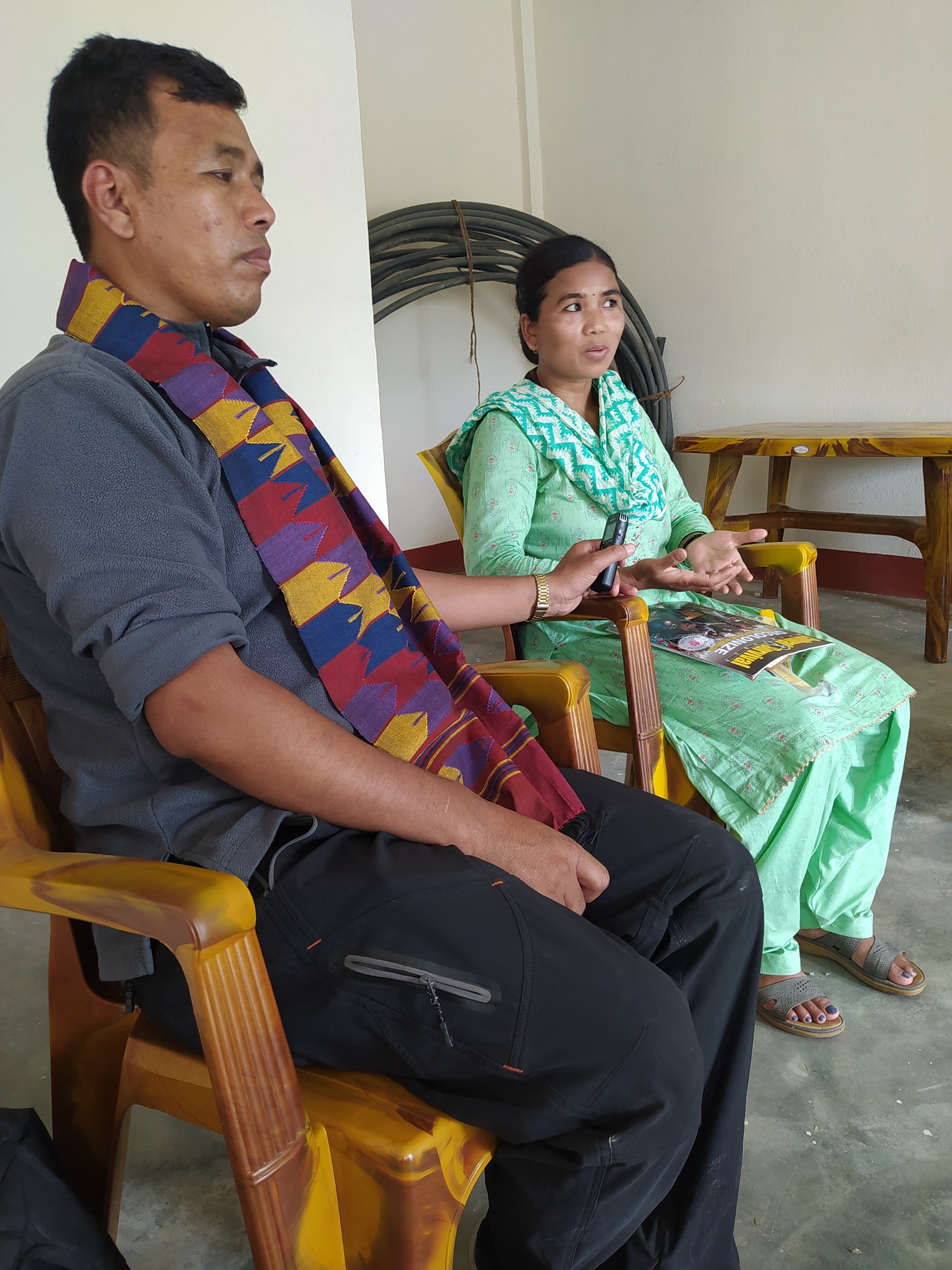
The Affected Committee submitted a 13-point list of demands with signatures of more than 300 affected persons from 6 villages that lie within the flooding areas to the Ramechhap District administration office. They also traveled to Kathmandu and personally delivered it to the Ministry of Energy, Water Resources and Irrigation and the office of the Prime Minister. In their demands, they have asked the government to make the Environmental Impact Assessment report available in the Majhi Kura language, which is the mother tongue of the Majhi. They also demand to be meaningfully consulted and have their Free, Prior and Informed Consent obtained on the decision of the project impacting them.
The Mahji further demand a redo of a field survey with the participation of affected community members; determination of fair compensation of the properties and land through meaningful representation in the compensation committee; community employment in the project based on skills and capacities developed via free training; free electricity generated from the project; the use of a significant percentage of the revenue generated from the project for the benefit of the affected Majhi and other local communities; and the ensuring of their rights throughout the course of the project’s implementation in accordance with ILO Convention 169, the UN Declaration, and other pertinent international laws.
As a 2021 Keepers of Earth Fund grant partner, the Nepal Majhi Women’s Association conducted advocacy and awareness-raising activities at the local level and with related stakeholders up to the national level to claim their land rights, which are threatened by Sunkoshi Marine Diversion. “We conducted a series of protests and demonstrations against the government. We have struggled for a long time, but as yet have gotten nothing,” says Nabaraj Majhi, a member of the Affected Committee. But, he adds, “We still have hope that government officials will respect our rights to live with dignity in our ancestral land and territories, and also respect our right to information, Free, Prior and Informed Consent, and consultation. We have hope that the government will not deprive us from our traditionally owned land, territories, and resources.”
This article was produced from conversations with impacted Majhi Indigenous community members conducted by a team of Cultural Survival staff members, Shaldon Ferris, Bia’ni Madsa’, and Dev Kumar Sunuwar, who jointly conducted a community visit in Nepal September 15-28, 2022.
All photos taken during the conversation held with affected Majhi representatives along the Sunkoshi River banks.
